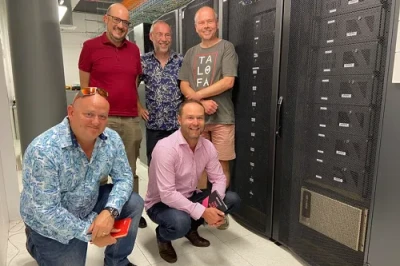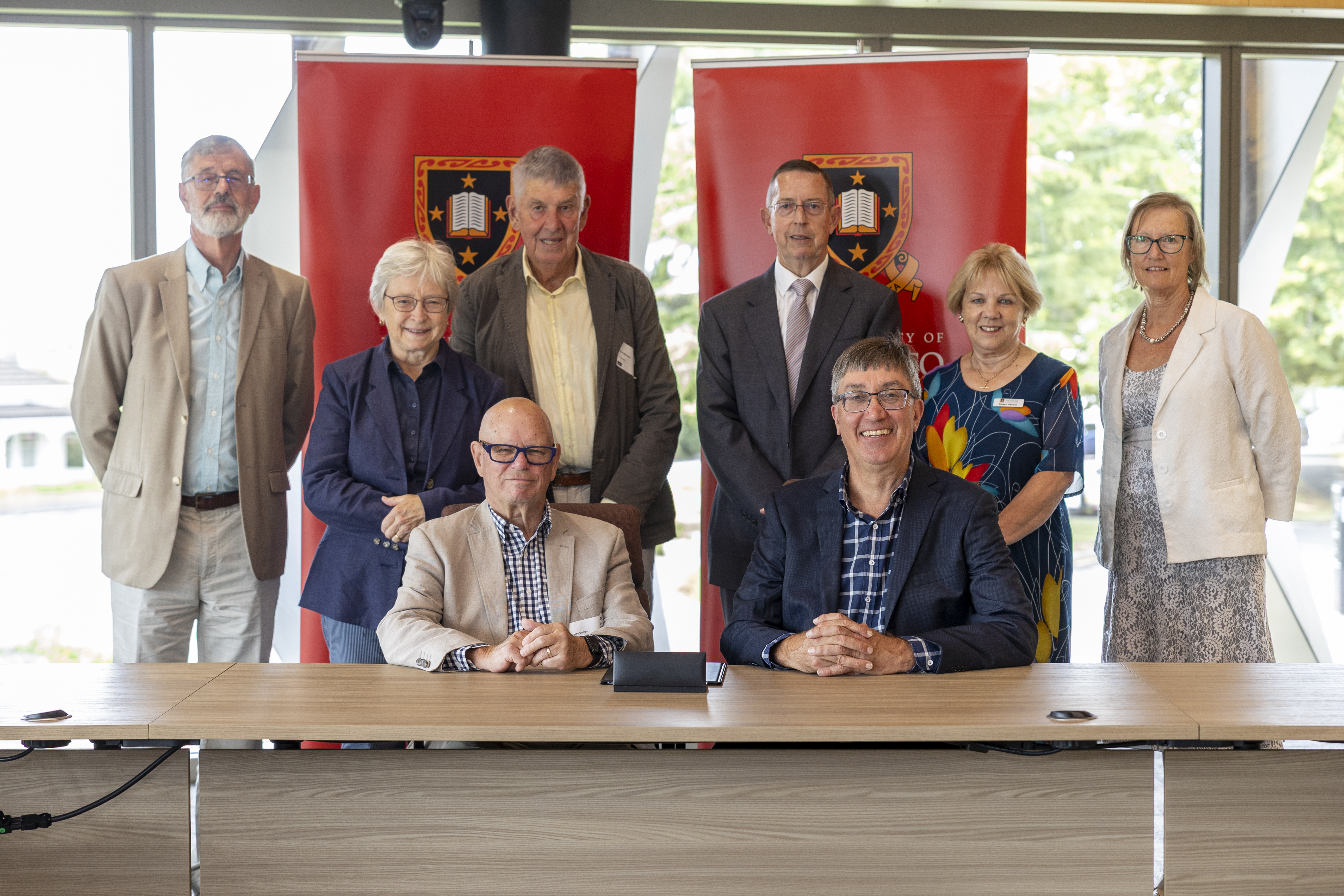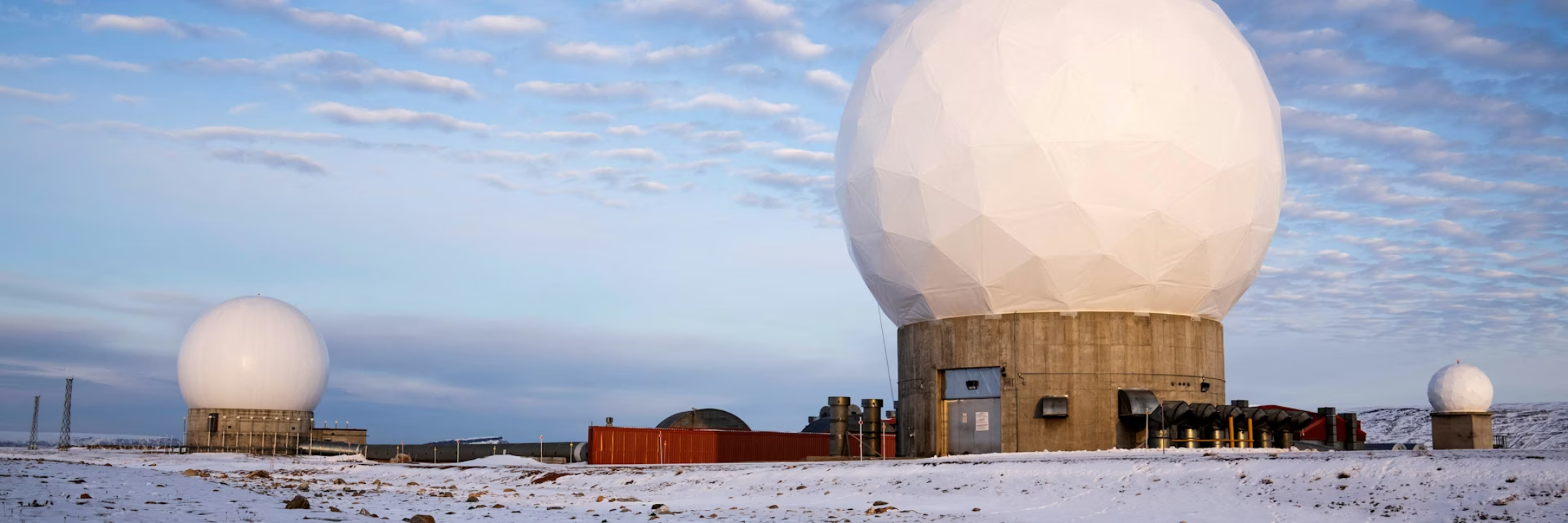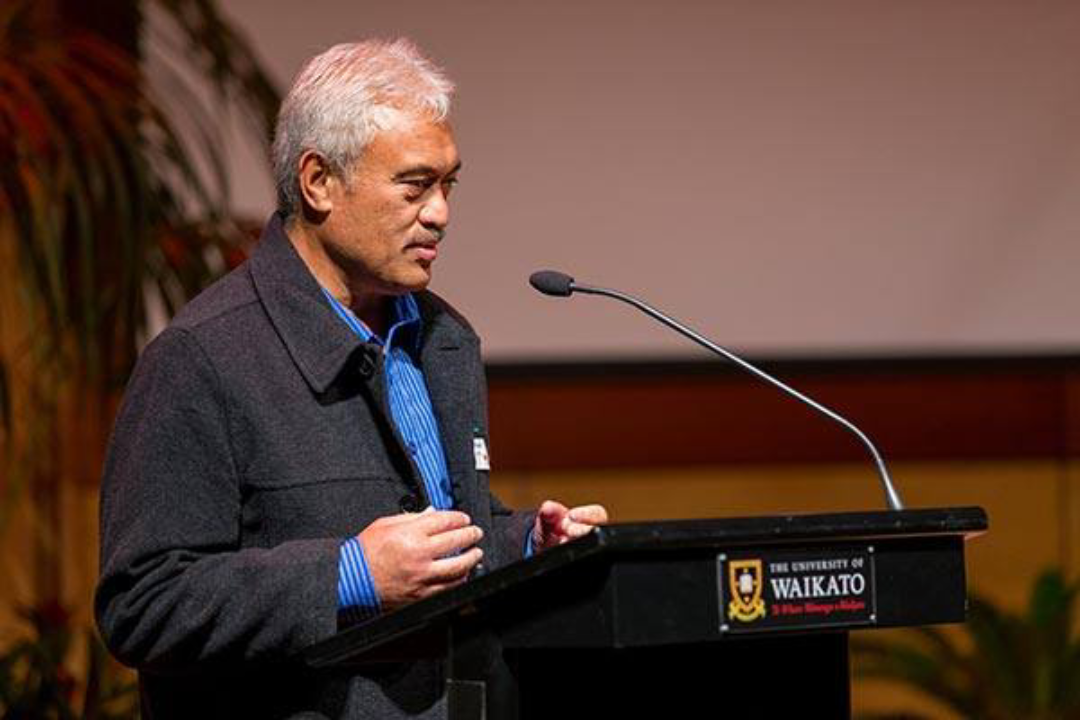
The NVIDIA DGX A100 supercomputer with L-R (top) Professors Albert Bifet, Bernhard Pfahringer and Eibe Frank and (bottom), Aubrey Donovan and Jason Moult, Fujitsu
New Zealand’s most powerful supercomputer for artificial intelligence applications has been installed at the University of Waikato as part of its commitment positioning New Zealand as a world leader in AI research and development.
The NVIDIA DGX A100 is the first computer of its kind in New Zealand and is the world’s most advanced system for powering universal AI workloads. The machine has been referred to as the Ferrari of computing because of how fast it can rapidly and efficiently process massive amounts of data, allowing students and researchers at the University to process at lightning-fast speeds, enabling machine learning and artificial intelligence that can solve problems from addressing climate change to managing our biodiversity.
Machine learning uses algorithms to explore huge data sets and create models that provide answers or outcomes mirroring human decision making. Models can be trained to recognise things like patterns, facial expressions, and spoken words - or they can find anomalies like credit card fraud.
One of the first projects the computer is being used for is to train models that can learn and classify New Zealand’s plants and animals, based on a publicly available database of more than one million photos.
Professor Albert Bifet says that students and researchers could take months, or even years, to process the data needed to create models like the one they are working on if they had to use more traditional computing: “This computer will allow our researchers to process that data in a matter of days. It will enable them to gain insights and progress their research at an unprecedented scale.”
The purchase was made possible through income from the sale of commercial licenses to the WEKA software, a suite of Java-based software tools for machine learning and data mining that the machine learning group at the University has been developing for more than 20 years.
“Being able to use the funds from WEKA, which has proved so successful, is a real win for us. WEKA software has been bought by several large international IT companies. It shows the success and depth of expertise we have here and has enabled us to reinvest back into our group,” says Professor Bifet.
The system was supplied by Fujitsu and fits into one quarter of a computing rack in the University’s main server room but, behind the gold casing, is a massive computing engine. The NVIDIA A100 Tensor Core GPUs featured in the DGX A100 system are designed specifically to accelerate the unique needs of AI workloads, while NVIDIA Mellanox InfiniBand networking ensures that data is rapidly supplied to the system.
The A100 GPUs enable data scientists and developers to perform a massive number of calculations all at once, a key feature of the algorithms behind machine learning and artificial intelligence. The DGX A100 has eight A100 GPUs containing 40 GB (gigabytes) of memory each for a total of 320 GB of GPU memory. When they all work together, they can process five quadrillion basic arithmetic operations per second.
“AI is a powerful tool that enables researchers to achieve scientific breakthroughs and discoveries on areas such as climate change and biodiversity, which are critically important to New Zealand and the world,” said Sudarshan Ramachandran, country manager, NVIDIA.”



